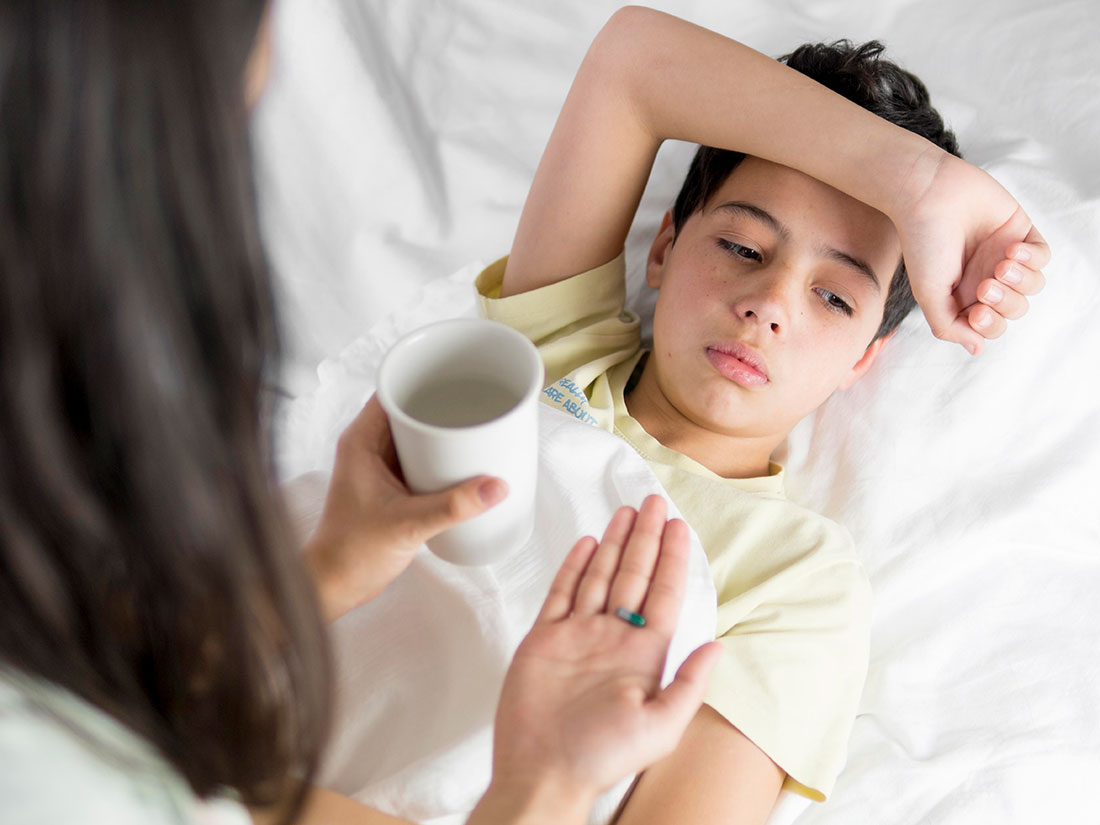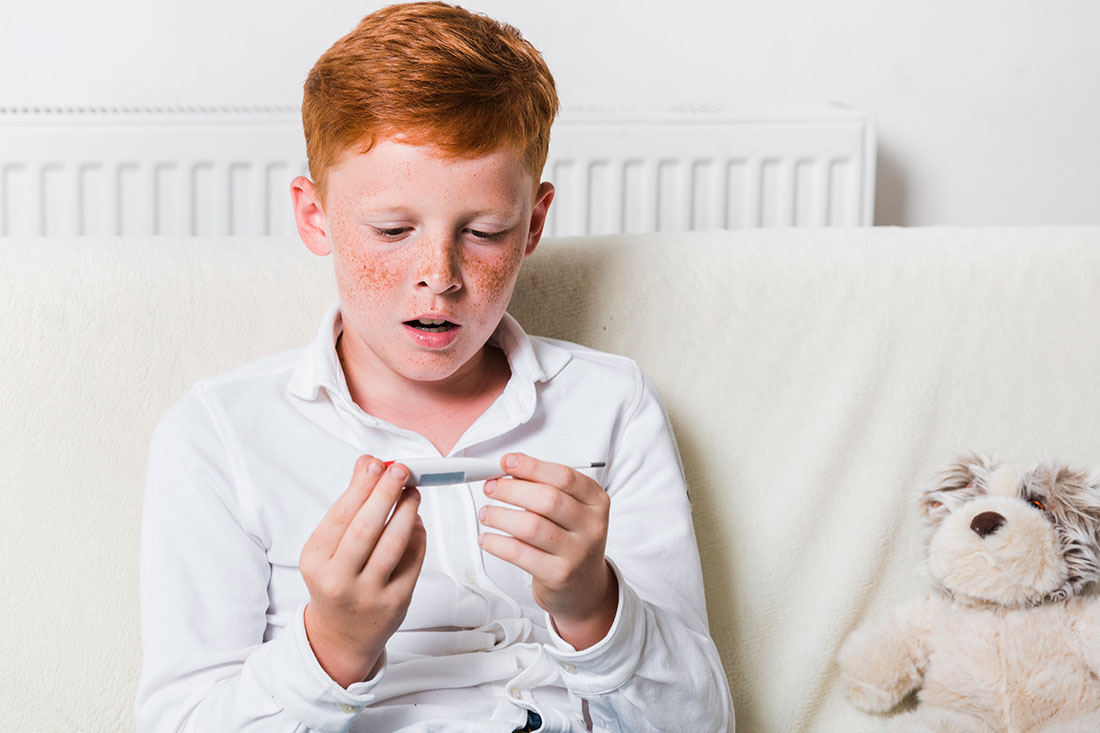
Backpack packed, breakfast eaten, everyone ready to leave, when suddenly you hear, "Mom, I don't feel well." What should you do in such a situation? Should you send your child to school, leave them at home, or rush them to the doctor? In this article, we answer when a child should stay home!
 How to recognize illness in a child? Feeling unwell doesn't always mean illness, but you should first pay attention to your child's behavior. If your child is quiet, sleepy, and appears tired, you may already be suspecting a more serious problem. A child who claims to feel unwell but is active and behaving as usual is likely fine. Pay particular attention to younger children, who still struggle to recognize illness themselves and may not always understand the source of their discomfort.
How to recognize illness in a child? Feeling unwell doesn't always mean illness, but you should first pay attention to your child's behavior. If your child is quiet, sleepy, and appears tired, you may already be suspecting a more serious problem. A child who claims to feel unwell but is active and behaving as usual is likely fine. Pay particular attention to younger children, who still struggle to recognize illness themselves and may not always understand the source of their discomfort.
 Pay attention if your child:
Pay attention if your child:- she is sleepy and seems tired,
- she is irritable,
- cries for no apparent reason,
- no appetite,
- is inactive, taciturn and uncharacteristically calm,
- complains of feeling cold,
- is hot, red or pale,
- complains of a headache or stomach ache.

When not to send your child to school - more serious symptoms
Sending a sick child to school not only harms the child but also puts other students and teachers at risk. However, it can sometimes be difficult to assess whether a child is fit to leave home. If you have any doubts, make an appointment with a doctor quickly or give yourself and your child a few extra hours to observe and make a decision.Your child should stay home if:
- has a temperature above 37.5℃,
- vomiting,
- has diarrhea,
- coughing heavily,
- their throat hurts,
- has a rash .

When to take your child to the doctor
If your child is feeling unwell, it's always worth taking them to a doctor for a checkup. In many cases, even with minor but persistent symptoms, a visit to the clinic will be necessary. Seek professional help if, despite leaving your child at home and resting, mild symptoms persist for more than two days. Pay particular attention to the child's temperature. For newborns and infants, proper care is crucial if vomiting and diarrhea occur. Even if the cause of these symptoms is harmless, they can lead to dangerous dehydration, which is easy to develop in such young children. Other signs that should prompt a visit to the doctor include:- The available medications for the child do not bring results,
- My child has not wanted to drink fluids for over 6 hours,
- The child urinates frequently,
- A rash appeared.
 Seek immediate help if:
Seek immediate help if:- Your child has had a serious accident or a hard blow to the head.
- The child has shortness of breath and breathing problems
- My child is breathing rapidly for no reason
- Breathing is accompanied by wheezing or grunting
- Persistent severe cough or wheezing
- The baby does not respond to stimuli
- The baby is very pale and difficult to wake up.
- I had a headache with a stiff neck.


Podziel się:
The best winter-inspired fun and creative projects for kids
The best winter-inspired fun and creative projects for kids